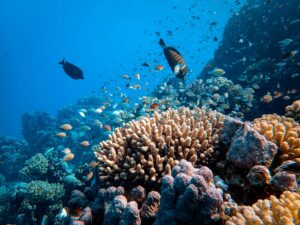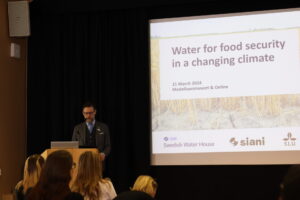Pooling power for source-to-sea success
The urgency of successfully implementing practical steps to achieve SDG 6 and SDG 14 was the overriding message at the High-level Panel on Bringing Together Oceans and Freshwater, with emphasis on local, inclusive measures.
Written by Nick Chipperfield | Originally appeared in Stockholm WaterFront Daily from World Water Week 2019
“I’m here to find out how we can mutually improve our act. Let’s get along the riverbanks, along the foreshores: it’s not rocket science, let’s get on with the job,” said Peter Thomson, UN Secretary General’s Special Envoy for the Ocean. “There’s only a certain amount of H2O on the planet; yes, there’s a freshwater community and a saltwater community, but we’re all on the same team. What’s good for SDG 6 is good for SDG 14,” Thomson said.
“Village schemes, individuals – that’s where the solutions lie. There’s some great work being done, but there’s a lot of work that still needs to be done there. We need to step all that up,” he added.
Isabella Lövin, Deputy Prime Minister of Sweden and Minister of Environment and Climate, echoed the call to pool efforts to improve fresh and saltwater quality, stressing the strong interlinkage between the two. “Partnerships across sectors are needed. We can only solve our problems if we do this together,” Lövin said.
These were themes that also emerged at the earlier, related session Preventing plastics in our waters: more than banning straws.
“What’s good for SDG 6 is good for SDG 14.”
– H.E. Peter Thomson, UN Secretary General’s Special Envoy for the Oceans
Announcing the publication of a report on marine litter prevention, Ruth Mathews, SIWI, noted the need for behavioural change that extends all the way from local level – river basins – to national and on to global level. “We need to transform how we govern plastics and how we finance interventions to start controlling our plastic waste,” Mathews said.
Robyn Gwee, Deltares, urged moves to more resource-efficient economies. “I think we need to change the way we manage our waste, and the way we design our products. Banning straws starts a conversation, but we really need to move towards preventative solutions rather than bans,” Gwee said.








